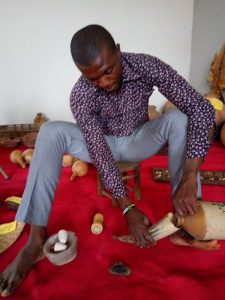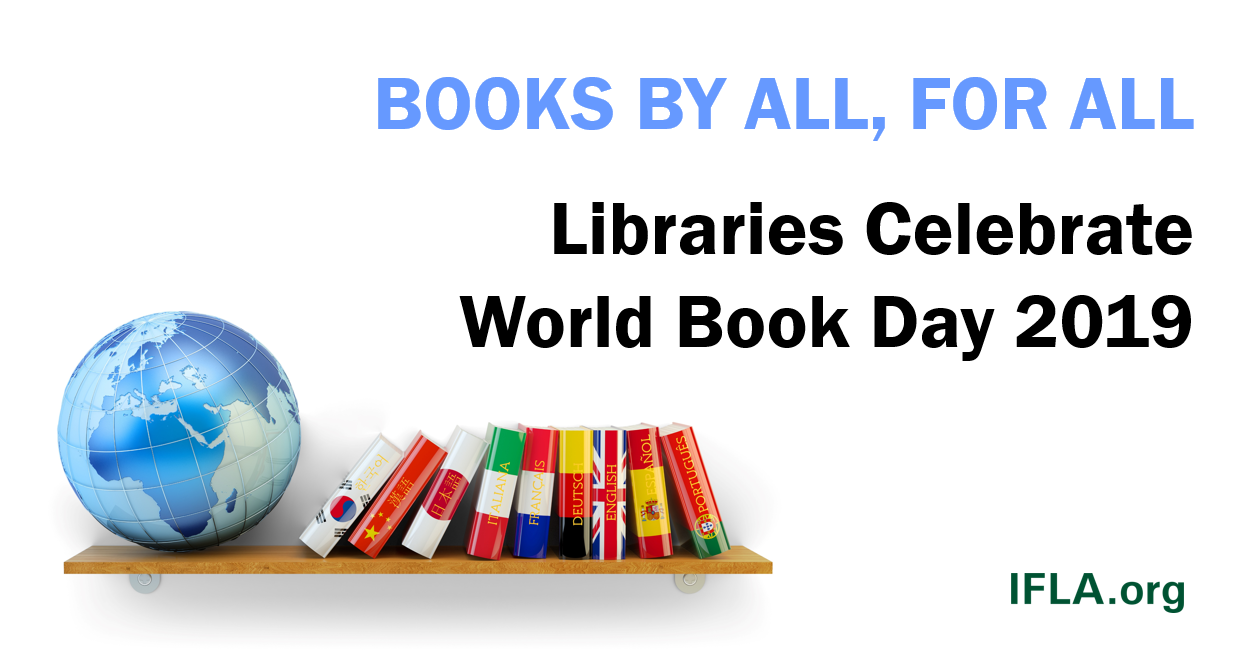2019 is the International Year of Indigenous Languages. IFLA has been celebrating and promoting the year, sharing stories of libraries from all over the world, which are contributing to the safeguarding and promotion of indigenous languages and cultures.
We have been in Canada, where libraries are collecting and preserving historical and culturally diverse records to ensure that indigenous groups benefit and see themselves reflected in the work of libraries. From there we went to the border-area of Germany and Denmark, where we learned how the Danish library in Germany provides access to literature in the mother language. From Germany to Geneva – Wend Wendland, Director of WIPO Traditional Knowledge Division, explained more about the relationship between copy right and traditional knowledge.
The next stop in our trip around the world is in Nigeria. Nkechi Sabina Udeze, Acting Director of Anambra State Library Board and Amaka Florence Nwofor, Senior Lecturer of Library and Information Science at Nnamdi Azikiwe University give us an insight into how they are working to preserve and promote the Igbo language in Nigeria.
Preserving the Igbo Language
The project by Anambra State Library (ANSLB) was born out of UNESCO’s 2016 warning that the Igbo language could become extinct by 2025, and following its participation in the Cultural Heritage contest run by the African Library & Information Associations & Institutions (AfLIA).
To preserve and promote the Igbo language, in 2018 the library created a cultural heritage corner in the headquarters of the Board with collected books and artifacts from communities through members of the Board.
 The collection grew through strong advocacy and documented oral history records from students of the department of LIS, Nnamdi Azikiwe University, Awka. These records were made available by the lecturer leading on teaching Oral Tradition in the Department, Mrs Amaka Nwofor.
The collection grew through strong advocacy and documented oral history records from students of the department of LIS, Nnamdi Azikiwe University, Awka. These records were made available by the lecturer leading on teaching Oral Tradition in the Department, Mrs Amaka Nwofor.
The ANSLB’s activities and programmes include presentations of Igbo language and culture such as drama, folklore, poetry, songs, reading, proverbs and riddles. The library preserves the Igbo language through engaging the younger generation to speak the Igbo language, and to make use of the books and electronic information resources.
The Library visits local communities, organises activities and programmes, and attends general meeting of Traditional Rulers. These Rulers have submitted historical records of their towns and advised others on how to do the same and make sure that their town’s history is preserved.
The Anambra State Broadcasting Station also hosts a radio show by the Acting Director of the ANSLB, Nkechi Udeze PhD. In her show she stresses that historical records should be translated into the Igbo language, while complementary copies and electronic versions should be brought to the cultural heritage corner of the ANSLB for preservation, documentation and dissemination.
The radio show has received great feedback, and listeners are commending this innovation geared towards checking the extinction of the endangered language and culture. As a result of this laudable project, more members of the communities are donating books and artifacts to support the preservation of the Igbo language and culture.
